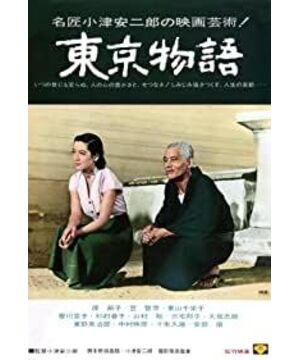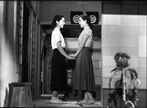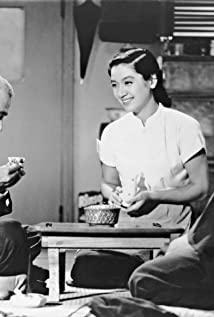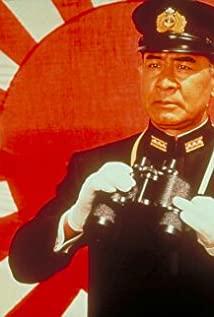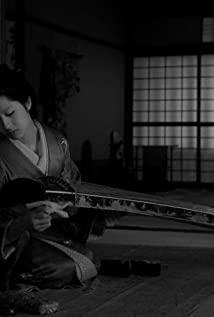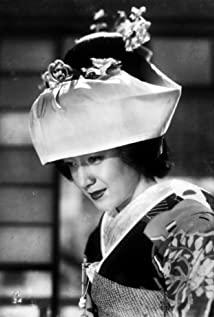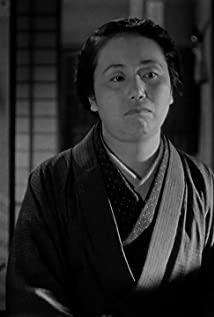At the beginning of the 1950s, many countries around the world were "rehabilitating". At that time, the United States was still dreaming of world hegemony. At that time, in order to ensure that our own country's territory was not threatened, we led the army to cross the border. The 38th parallel, and the ordinary Japanese people at that time were also going through a significant change.
What kind of change?
I want to spy on the disintegration of the Japanese family system through the growth of my children. - Yasujiro Ozu
"Tokyo Story" did it successfully.
After more than 60 years, we who are accustomed to the fast food era will obviously feel uncomfortable when watching this movie, the slow old man, the slow walking, the slow talking, the slow plot... But this According to director Ozu's arrangement, he wanted the audience to carefully understand how people's emotions flow from every action, every word, and every expression of the little character. In the process of watching the movie, we seem to be temporarily withdrawn from life, but it seems to return to the real life.
The story is very simple. It tells the story of Zhou Ji's old couple's trip to Tokyo to visit their children, but they were pushed around by their children as a burden, and finally they were disappointed in their journey home. Since the plot is simple, the use of the camera lens or special effects is usually used to make the film fuller, but Ozu is not, his camera lens is simpler.
A low-camera fixed camera to see the world, the only two moving camera scenes in "Tokyo Story" have a big feature is the camera: fixed camera upside down shooting , it can also be said that this is the characteristic of Yasujiro Ozu. His films mainly focus on the family life of small people. How to make the small Japanese-style house both lively and well-organized requires some thought.
The low camera position can basically show the process of the house, and the upward shooting allows the ceiling space in the house to appear as much as possible, so that the characters are not too large to make the picture more harmonious, and the fixed camera position is very clever, it can make the audience really feel to feel the changes of people and things. Let's take a look at the effect of using the lens in this way.
At the end of the movie, Zhou Ji, who lost his wife, is sitting alone in the living room and looking out the window, while the story begins with the couple preparing their luggage for a trip to Tokyo. After a good comparison before and after, things are right and wrong, the old man didn't say a word, just hunched his back and stared out the window, letting a desolate smell of losing his wife slowly flow out.
Since the camera is fixed, it is not our common camera that follows people, but the characters take the initiative to "enter" or "leave" the camera. Ozu creates a sense of flow through the increase and decrease of characters in the picture. For example, when the parents came to Tokyo, the eldest son's family and his parents chatted and greeted each other in the living room, the eldest daughter joined, and then the second daughter-in-law arrived, and The arrangement behind the departure of the eldest daughter and the second daughter-in-law makes the picture flow in the "still" shot.
If there is no increase or decrease of characters, then light and shadow will act as supporting roles in the film. The clever lighting will change the light and shade of the seated person, make the shadow jump behind the person who walks by, the smoke of mosquito coils and even the hands The cigarette smoke makes the picture come alive.
Although fixed shots are a feature, the director made an exception for Zhou Ji and his wife. The only moving shot is dedicated to the moment when the Ueno Park couple was homeless . The camera slowly exposed the couple in the corner from left to right. It felt like we were lying behind the wall quietly reaching out to peek at others, only to hear the two of them joking with each other and already "homeless" .
When the couple decided to split up to find a place to go at night, the most classic lines in the film appeared: "Tokyo is so big, if we accidentally get lost, we will never find each other again" , and the mother followed closely behind the father, The camera also follows them. Tokyo is really big, so big that the couple is afraid of getting lost. Tokyo is really big, so big that the couple doesn't know where to go to stay for a night.
Sensible parents use the most polite words to understand the heart of the most bitter love child Yasujiro Ozu has never been a person who follows a routine. When everyone is pursuing a more exciting plot conflict, he thinks that the movie should weaken the plot, and proposes "A good movie should win or lose with aftertaste" .
What is the aftertaste? I think it's the point of "see through but not say through", and the "aftertaste" of "Tokyo Story" is that there is resoluteness hidden in forbearance, unfeeling in tenderness, and calm but expressive. It tugs at the hearts of the audience inch by inch.
In the movie, Zhou Ji and his wife went to each of their children's homes, except for the second daughter-in-law Noriko's home twice.
In the eldest son's house, the couple was very politely received. When the long-awaited trip was cancelled, the grandmother took the little grandson to the hillside outside the house to relax. The picture freezes with the grandmother running behind her grandson, as if she can't catch up no matter what. The estrangement between grandparents and grandchildren also implies that the eldest son of the couple is no longer close to them.
The second daughter is obviously a child who is deeply loved by the couple. She does not use honorifics to her parents and makes fun of her mother. When her parents came to her house, she arranged for her mother to sew her up. She complained that her husband gave her The behavior of parents buying high-end cakes is a waste, because they can't tell the difference, and finally discussed with my brother to send their parents to Atami for tourism.
The first time I went to the second daughter-in-law Noriko's apartment was because the children didn't have time to spend with their parents, so Noriko asked for a day off to take the second-old man on a day trip to Tokyo. Even the borrowed sake and the ordered dinner made the couple feel that the second daughter-in-law came from the second daughter-in-law. sincere companionship. They felt the lack of "family affection" in the smallest apartment, and they began to talk more, no longer a polite greeting, but a friendly family, just like ordinary parents and children.
The second time I went to Noriko's house, the old mother was alone. On that "homeless" night, Noriko gave her a massage to accompany her to chat with her deceased son, and gave her mother some money the next day. The mother finally couldn't help crying, and finally this daughter-in-law gave her meticulous care and kindness.
Going to the younger son's place was purely an accident. On the way home from the old couple by train, the mother suddenly fell ill and had to go to the younger son's place to disturb them. When the younger son talked about this with his colleagues, he said "trouble" three times in a row, but the parents at this time encouraged each other at his residence, thinking that the two of them were already very lucky, and the children were living well. .
Every time I see the old couple in the movie smiling and saying "Thank you so much", "We are so lucky", "The children are all fine", "Tokyo is so big", "We should go back", my heart will pour out Some strange things, what I want to say in my heart should be "my children seem to be busy", "my children seem not as good as they thought", "my children seem to have changed", "my children seem to be We don't seem to welcome us very much", "Let's go back."
The old couple said nothing, but we heard everything. If you feel some sadness, helplessness or warmth in your heart after watching each scene, then congratulations you have felt the sadness of Japan.
Wusao is Japan's national aesthetic consciousness . From the Japanese master of Chinese studies, Benju Xuanchang, we can understand the meaning of Wusao. "Material" refers to everything that can be seen, heard, touched, and felt. As for the word "sorrow" , as long as the human heart has a feeling, it is moved, as long as the heart is moved, such an emotion is "sorrow".
So all the emotions that can make you "heart" are sadness . Always cherishing a heart of grief, knowing where the feeling of grief comes from, shows that you are still a person with a heart of compassion, otherwise you will be like a stone-hearted person. In the movie "Tokyo Story", Japanese-style things are blooming everywhere.
The development of the times made the old couple go to the distant Tokyo in one day, and the development of the times also made them and their children farther and farther away, and the development of the times made them unable to find a home in the big city of Tokyo.
The disintegration of traditional families when a new era arrives
When the United States attacked North Korea in 1950, Japan became the supplier of military supplies to the rear of the United States in Asia, and obtained a large amount of "special supply" funds, thus seeking an excellent opportunity for Japan's economic development. There are three aerial transitions in the movie using towering factory chimneys. The old couple's day trip to Tokyo also made people see Tokyo's high-rise buildings and the city's well-developed bus and subway traffic.
It took a very short time for Japan to grow into the world's second largest economy, which shows how fast Japan developed in that era. The Japanese people were pushed into the reforms of the new era, and everyone had to struggle to survive. That was the stage when one was pushed by the times, and those who were on their way had no time to stop.
Therefore, even if the eldest son is a doctor in the community, he is only a young man in the community, because a patient wants to turn off the family's group trip; so the second daughter, even though she is the manager of a hair salon, has no way to accompany her parents because of the arrival of the guests; so the younger son Not being able to take time off to accompany the sick mother, even taking care of the quilt sent by the mother is a kind of "trouble" for work. Everyone has to work all the time, and there can be no pause for a moment. The reason is that "after all, there are too many people in Tokyo", which my old father said many times when talking to old friends.
Yes, there are too many people, and a little pause will be abandoned by the times. Just taking care of their "home" made people in that era too busy to take care of themselves. These children can only be said to be powerless when it comes to taking care of their parents.
"What a good person she used to be, why did she become a stranger after marriage?" This is an unanswerable question asked by the father. He did not understand why a gentle and considerate daughter who used to be such a good person would become a stranger after marriage. changed. Mothers were equally astonished at the changes in their children.
What they don't understand is that the era when the whole family lived together has actually changed. In the past, the family would jointly maintain the development of the entire family. Now, children and children will form their own "small families" when they get married. "Work" is really unbearable.
People, if you live in ancient times, you feel that all your behaviors and thoughts are normal, and if you live in modern times, you feel that all your behaviors and thoughts are normal, but people born in the transition between the old and the new often pay the price of tearing themselves to seek balance. Either be swallowed by the cracks of the times, or jump into another era. Want to stay, easier said than done.
Yasujiro Ozu saw the wheel of the times, he understood his powerlessness, and he also saw people's struggles, he just wanted to show all this without making any comments. How normal is all this? Isn't this how the replacement of all dynasties happened? People who have read history books will only sigh that the original line and paragraph in the book are the struggles of a group of people throughout their lives.
The old couple thought they could go back to the original place and pretend that nothing had changed. Who knows, the trains of the new era have already arrived at the door.
View more about Tokyo Story reviews


